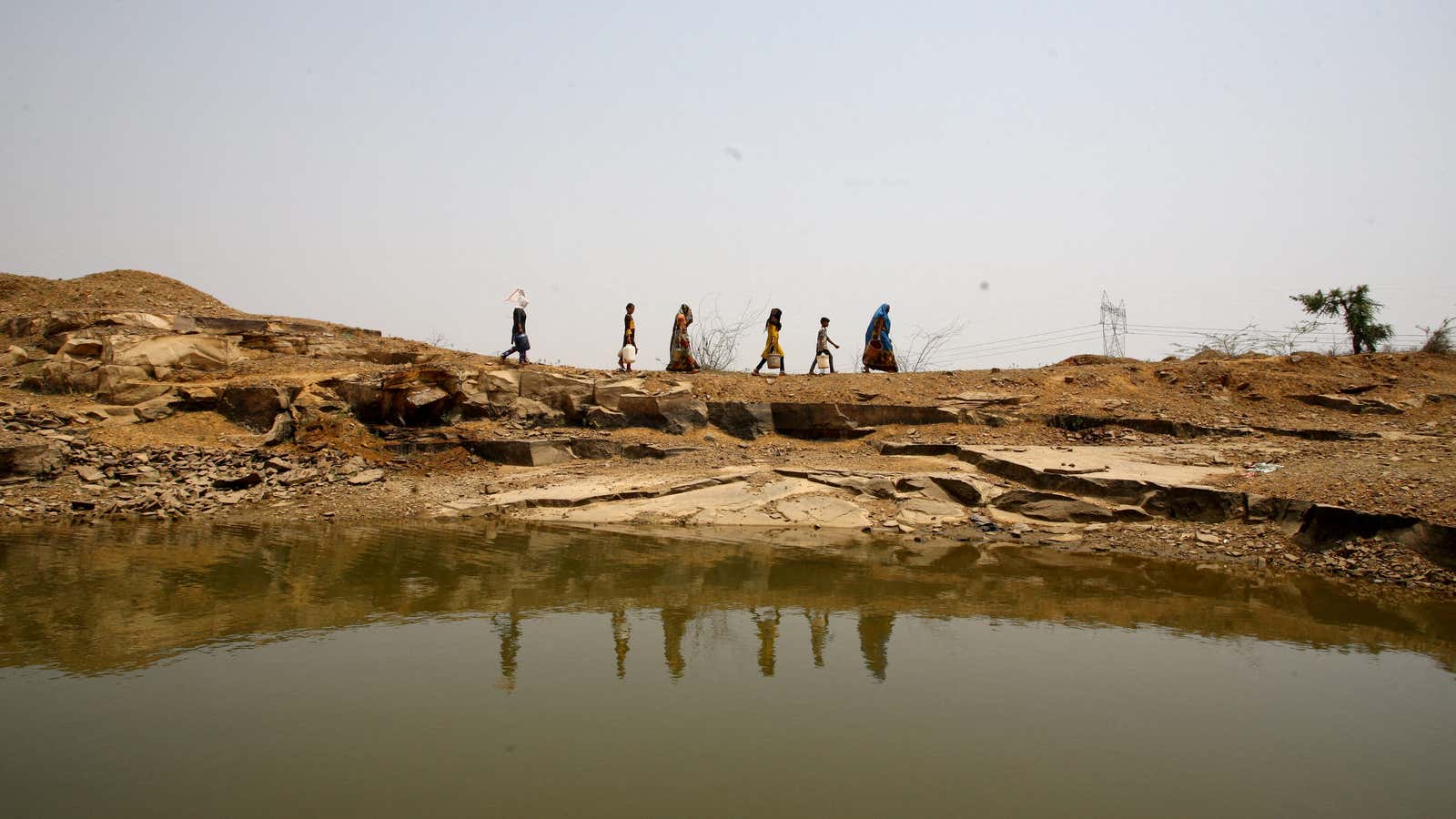India has granted relief to a bunch of big companies, including legacy businesses like Tata Sons and the Adani group, in cases related to overextraction of groundwater. This has come merely days after some of their projects were branded “illegal” by authorities for such a breach of law.
The country’s central ground water authority (CGWA) yesterday (July 14) extended the last date for renewing no objection certificates (NOCs) from June 30 to Sept. 30 to extract groundwater for various business purposes, The Indian Express reported.
The NOCs are issued for a time span of 2-5 years. On June 27, the CGWA had listed 2,069 projects or units as having failed to renew the NOCs.
“Groundwater withdrawal by the projects (as per the list attached) is illegal as per law,” The Indian Express reported quoting a communique issued by the CGWA member secretary.
Why the project of Adanis and Tatas were illegal?
India’s groundwater extraction guidelines, laid in 2020, exempt only the following categories from the NOC requirement: individual domestic consumers, these falling under rural drinking water supply schemes, armed forces establishments and central armed police forces establishments in rural and urban areas, agriculturalists, and micro and small enterprises drawing less than 10 cubic metres a day.
However, the CGWA found many others extracting water illegally. This included Adani Wilmar, yoga guru Ramdev’s Divya Pharmacy, and Tata Steel, according to The Indian Express report.
If an entity fails to get its NOC renewed within three months of its expiry, then it is liable to pay environmental compensation till the competent authority renews the certificate.
However, those who breached this rule won’t be required to pay the compensation now, given that the CWGA has extended the deadline.
India’s declining water table
India’s groundwater levels have been falling consistently for years. In November 2020, up to 33% of the wells monitored by the CGWA in the country showed a 0-2 metres shortfall over the decadal average between 2010-2019.
The decline was more than four metres in a few pockets of Delhi, Chennai, Indore, Coimbatore, Madurai, Vijayawada, Dehradun, Jaipur, Allahabad, Ghaziabad, Kanpur, and Lucknow over the years.
India’s cities account for about 48% of its groundwater usage.
